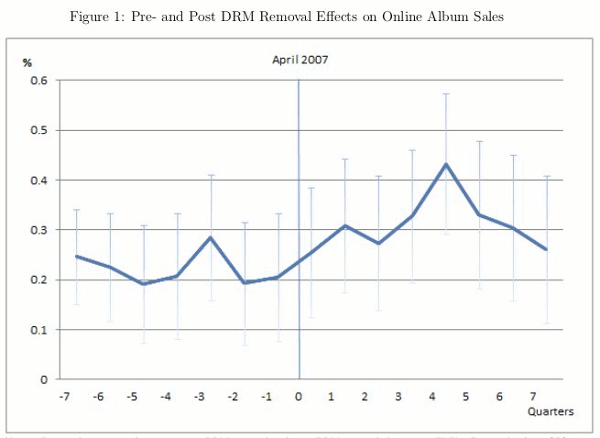The Chinese government has declared victory in its recent
campaign to clean up what it considers rumors, negativity and unruliness
from online discourse, while critics say the moves have suppressed
criticism of the government and ruling Communist Party.
Beijing
launched the campaign this summer, arresting dozens of people for
spreading rumors, creating new penalties for people who post libelous
information and calling in the country's top bloggers for talks urging
them to guard the national interest and uphold social order. At the same
time, government agencies at all levels have boosted their online presence to control the message in cyberspace.
"If
we should describe the online environment in the past as good mingling
with the bad, the sky of the cyberspace has cleared up now because we
have cracked down on online rumors," Ren Xianliang, vice minister of the State Internet Information Office, said during a rare meeting this week with foreign journalists.
A
study by an Internet opinion monitoring service under the party-owned
People's Daily newspaper showed the number of posts by a sample of 100
opinion leaders declined by nearly 25 percent and were overtaken by
posts from government microblog accounts.
"The
positive force on the Internet has preliminarily taken back the
microphone, and the positive energy has overwhelmed the negative energy
to uphold the online justice," said Zhu Huaxin, the monitoring service's general secretary, according to a transcript posted by state media.
Observers
say the crackdown has noticeably curtailed speech by suppressing voices
and triggering self-censorship, with the country's more liberal online
voices being more ginger in their criticism and posting significantly
less.
Even Zhu suggested the campaign might have gone too far. In
one example, Web users refrained from reposting information and
commenting on the government response to a severe flood in the eastern
city of Yuyao in early October. A year ago, they were garrulous in
questioning Beijing's drainage system when a rainstorm ravaged the city.
"It is a reminder that we must strike a balance between crushing online
rumors and ensuring information flow," Zhu said.
Some critics say the moves may backfire by eliminating an effective conduit for the public to let off steam.
"If there's no channel for the public to express themselves, they may take to the street," said historian and political analyst Zhang Lifan,
whose online accounts were recently removed without warning — possibly
because he had shared historic facts that the party did not find
flattering.
"The governments also can take pulse of the public
opinion, but if no one speaks up, they will be in darkness," Zhang said.
"It is so odd they are covering up their eyes and blocking their ears."
The rise of the Internet in China
has always been followed by Beijing's efforts to rein it in, and the
latest challenge has been the explosive growth in social media,
particularly microblogging, which has allowed users to share firsthand
accounts and opinions with great speed. Advocates of free speech have
applauded the technology as a strong boost to their cause.
As of June this year, China's
microblogging services had more than 330 million users, and WeChat, a
mobile phone-based instant messaging service that allows users to share
information with circles of friends or subscribers, had more than 300
million users, Ren said.
"The unexpected growth has caught people by surprise," Ren said.
Chen
Ziming, a Beijing-based political analyst, said Beijing's apparent
success in grabbing control of social media is a big setback for free
speech.
"They have always been able to control newspapers, radios
and TV stations, but there have been some holes in the Internet, and the
microblogging was the last hole," Chen said. "They have achieved their
goal. When 10 percent of the accounts are banned, additional 20 to 30
percent of the users will not speak."
Authorities in recent months
have been arresting microbloggers on the charge of spreading rumors or
disrupting the public order, including a teenager boy who raised some
questions over a murder case online. Many intellectuals, writers, and
journalists have seen their blogging and microblogging accounts removed
altogether. A Chinese-American businessman with a strong online
following was arrested for soliciting prostitutes and paraded on state
television in a campaign to discredit him.
Chinese propaganda
officials have always seen the media — new or old — as a crucial tool to
support state rule and are wary of cacophony.
"The ecosystem for
public opinion online has noticeably improved, and that has created a
good environment conducive to the overall work of the party of the
government," Ren said, in touting the benefits of well-managed public
discourse.
But the historian Zhang said Beijing has failed to play
by rules when it shut down critical but law-abiding microblogging
accounts. "They see critics as opponents," Zhang said. "That's a stupid
thing to do."
Despite claiming preliminary success in taking
control of the Internet, Beijing is likely to roll out more regulations.
In a guiding document for the next five or even 10 years, China's
senior leaders have mandated that the state must set the perimeters and
the tone for online opinion with "positive guidance" and "management"
and that the state should "standardize" how online communication
unfolds.
Political analysts say they predict the heavy-handed
control will continue. "They are still pretty nervous about preserving
stability," said Steve Tsang, a political scientist at the University of
Nottingham. "Given the political environment, I don't see any
relaxation."
But known for their ingenuity to circumvent
censorship, members of the Chinese public may again push for more room
in speech, said Willy Lam of the Chinese University of Hong Kong.
"I think the cat and the mouse game will go on. People might be afraid now, but after a while, the old pattern will resume."





 Cracked
runs down some holiday traditions that aren't worth the effort that
some folks put into them. I went there hoping to find something I can
actually shed from my busy holiday schedule, but I found that I don't
pretend to like any of them. In fact, the only one I actually
participate in is the Thanksgiving leftovers -and I honestly LOVE having
a refrigerator full of prepared foods that at least someone in the
family likes and will eat. That means I won't be cooking again for quite
some time. And the secret to making a good turkey sandwich is the
generous use use of Miracle Whip. Anyway, the other traditions are kind
of annoying, like the office Secret Santa gift exchange.
Cracked
runs down some holiday traditions that aren't worth the effort that
some folks put into them. I went there hoping to find something I can
actually shed from my busy holiday schedule, but I found that I don't
pretend to like any of them. In fact, the only one I actually
participate in is the Thanksgiving leftovers -and I honestly LOVE having
a refrigerator full of prepared foods that at least someone in the
family likes and will eat. That means I won't be cooking again for quite
some time. And the secret to making a good turkey sandwich is the
generous use use of Miracle Whip. Anyway, the other traditions are kind
of annoying, like the office Secret Santa gift exchange.





















